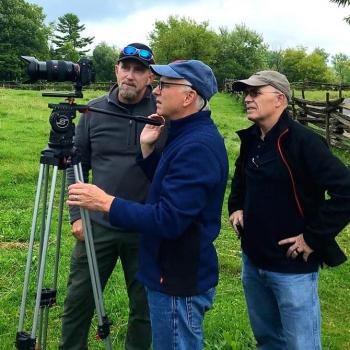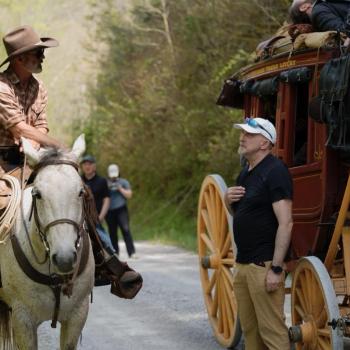
FairMormon, Book of Mormon Central, and the Interpreter Foundation are not competitors. We’re friends in a common cause. We cooperate. We’re interconnected. Every year for a very long time, for example, at least one of the speakers at the annual FairMormon conference came from the old FARMS, the Foundation for Ancient Research and Mormon Studies, later known as the Neal A. Maxwell Institute for Religious Scholarship. Since 2012, when the new regime in control of the Maxwell Institute terminated its involvement in apologetics and I was shown the door, at least one of the speakers at the annual conference has come from the Interpreter Foundation — which was founded that year. This August, FairMormon will convene its twentieth annual conference; I’ve spoken at every single one of them. I’m the president and chairman of the board for Interpreter, but I also serve on the FairMormon board. Book of Mormon Central often uses materials from Interpreter, and Interpreter has published numerous articles written by people connected with Book of Mormon Central. Heck, the most recent book published by Interpreter was a festschrift, an anthology of articles, in honor of Jack Welch.
I would like to announce that the three organizations have now joined together for fundraising and perhaps for some common ventures in an association called Mormon Voices:
I emphasize that the organizations haven’t merged. They will cooperate, but they will continue to function independently. Their budgets will be separate, as before. Their agendas will be determined separately, as before. And, of course, potential donors can still give to them separately.
One of our concerns, though, was that some who have wanted to support the kinds of work that they do have been baffled by their multiplicity, seeing them as competitive or at least confusing, wondering where they should put their money. Mormon Voices will solve this problem. Its leadership comes from all three constituent organizations and, together, they will oversee the allocation of funds given to the common cause.
I’m grateful for the generosity of those who’ve made the Interpreter Foundation possible, not only by means of donated funds but donated time and labor. Over the five-plus years of its existence, volunteers have reported approximately 20,000 hours of labor contributed to Interpreter, worth (conservatively speaking) at least $900,000—and many of our volunteers don’t report their time. (Some regard it as a matter of principle not to do so, despite my pleas.) Moreover, that figure doesn’t count the time given by our roughly 122 authors. It doesn’t, for example, reflect Royal Skousen’s years of consecrated effort.
We have great ideas, though, for the future. I invite everybody who cares about advocating and defending the faith in the manner of FairMormon, Book of Mormon Central, and the Interpreter Foundation to consider at least a small donation to them, either individually or, through Mormon Voices, collectively.
Elder Neal A. Maxwell was fond of a quotation from Austin Farrer about C. S. Lewis. It became something of an unofficial motto for the old FARMS, and it’s very much on my mind in my work on behalf of the Interpreter Foundation and as I think of the Mormon Voices Association:
“It is commonly said that if rational argument is so seldom the cause of conviction, philosophical [and scholarly] apologists must largely be wasting their shot. The premise is true, but the conclusion does not follow. For though argument does not create conviction, the lack of it destroys belief. What seems to be proved may not be embraced; but what no one shows the ability to defend is quickly abandoned. Rational argument does not create belief, but it maintains a climate in which belief may flourish.”












